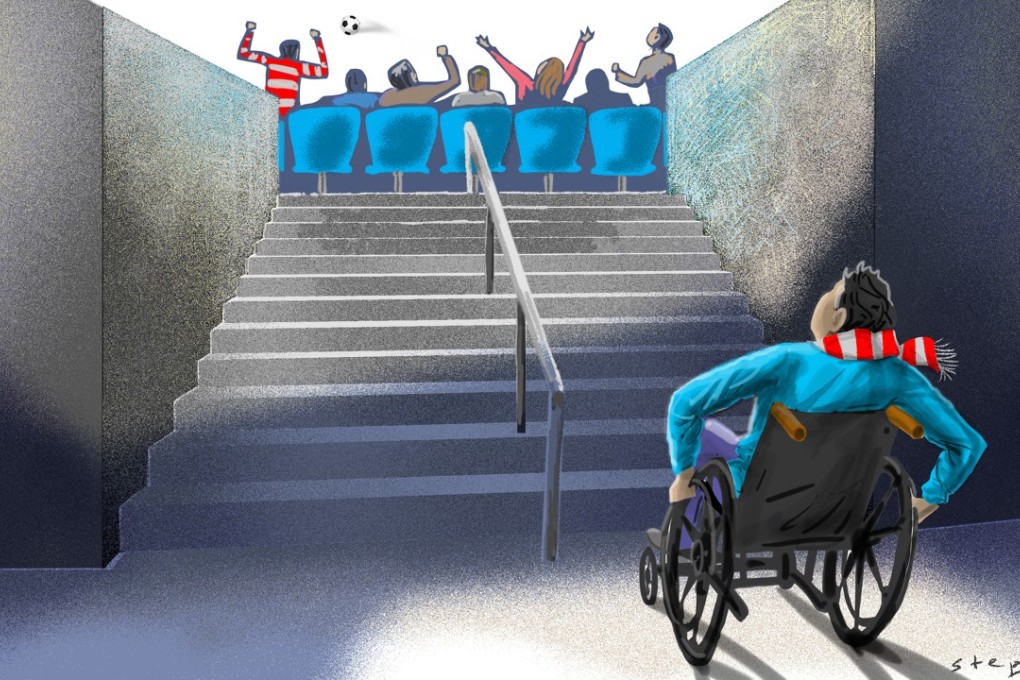The good, bad and ugly sides of international sporting events as a wheelchair user
Paul Letters says many sporting events – in Hong Kong and elsewhere – still fail to accommodate the varying needs of people with disabilities, who should be able to sit with their families. Organisers should consider flexible seating and ticket strategies as well as access to the venues

Like anybody else, we like to feel part of the supporters rather than apart from them. Individuals need to be treated as such. Physical access within a venue and blue badge car parking are perhaps the more obvious needs, but flexible ticketing and seating strategies are also fundamental.
Can you imagine blue badge parking at an international sporting event in Hong Kong? Well, yes, actually. Perhaps not at Hong Kong or Mong Kok stadiums, but at Tseung Kwan O’s world-class velodrome, parking spaces for the disabled are readily available.
The less severe your disability, the more help you get. Go figure
The problem in Hong Kong is that to attain the blue badge in the first place, the disabled person must be the driver. Let that sink in. If your son/daughter/parent suffers from a disability that prevents them from driving, your family car will not qualify for a blue badge. I’ve taught students who are never going to be able to use their limbs to drive – so their family’s need for an accessible parking space is far greater than mine (I’m fully functional but suffer from chronic pain when walking more than a short distance). Yet they cannot park in blue badge bays, whereas I, as a disabled driver, can. The less severe your disability, the more help you get. Go figure.